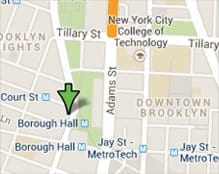Understand your search and seizure rights
Knowing your legal rights when it comes to search and seizure can mean the difference between a conviction and a dismissal. Whether you are on foot or in a vehicle, the U.S. Constitution protects you from unreasonable searches of your person, car or other property.
Learn the facts you need to protect yourself from the impact of an illegal police search.
Probable cause
First, law enforcement cannot stop you in traffic for no reason. If an officer pulls you over, he or she must have cause to do so. Checkpoints count as a legal stop, provided officers check every car or follow a specific pattern such as every fourth car.
Legal searches
Under the Fourth Amendment, individuals have protection from searches of their vehicle during a traffic stop. However, certain exceptions apply, including when:
- The officer has probable cause to suspect you of committing a crime or to arrest you for a crime.
- You consent to the search.
- You have drugs or drug paraphernalia in plain view in the vehicle.
- The officer suspects that you are about to destroy criminal evidence, which is more common in home searches than in vehicle searches.
- The officer has a search warrant that specifies the right to search your vehicle.
- Law enforcement has towed and impounded your car, even for something as simple as an unpaid parking ticket.
Refusing a search
If an officer asks to search your vehicle or requests that you step out of the car, you must say “no” clearly to exercise your constitutional right to refuse. For example, you may state “I do not consent to a search of my vehicle without a search warrant.”
When an officer stops you and asks to search your vehicle, remember that you have the right to refuse except in the circumstances above. If he or she commits procedural violations during the search, you may be able to argue for dismissal of your criminal case.
Office Location
Neil S. Ruskin
188 Montague Street Suite 900
Brooklyn, NY 11201
Local: (718) 237-1547
Fax: 718-875-4011












